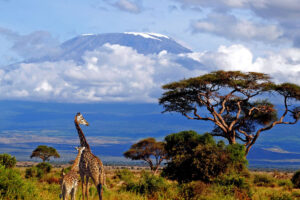Tabora. Tani 31,611 za asali kati ya 33,276 inayozalishwa nchini kila mwaka sawa na asilimia 95 huuzwa katika masoko ya ndani huku tani 1,663 sawa na asilimia tano pekee ndiyo inauzwa katika soko la kimataifa.
Taarifa hiyo imetolewa jana Ijumaa Agosti 16, 2024, na Naibu Waziri wa Maliasili na Utalii nchini Dunstan Kitandula wakati wa hafla ya utiaji saini wa makubaliano (MoU) ya uuzwaji wa asali ya Tanzania katika soko la Jamhuri ya Watu wa China.
Kitandula ametaja baadhi ya sababu zinazokwamisha asali na mazao yake yanayozalishwa nchini kutouzwa nje, kuwa ni pamoja na kutokidhi viwango vinavyoweza kuifanya ikidhi kuuzwa katika soko la kimataifa.
“Wafanyabiashara watatakiwa kukidhi vigezo vya kimataifa vya usalama wa chakula na afya ikiwa ni pamoja na kusajili kampuni zao kwenye mifumo ya kimataifa ya udhibiti wa afya na usalama wa vyakula, afya na mimea na ulinzi wa mazingira,”ameeleza.
Kutokana na changamoto hizo, Kitandula amesema Serikali imeanza utekelezaji wa mpango wa udhibiti wa mabaki ya kemikali na mfumo wa ufuatiliaji wa ubora wa asali ili kuiwezesha kukidhi viwango vya kimataifa.
Pia ametaja uamuzi wa Serikali kuweka msamaha wa kodi ya ongezeko la thamani (VAT) kuwa unalenga kujenga mazingira rafiki kwa wakulima na wazalishaji wa asali, ili waweze kuzalisha bidhaa hiyo katika viwango vya kimataifa.
Akizungumza kwa niaba ya Serikali ya China, Waziri na Katibu wa Kamati ya CPC ya Utawala Mkuu wa Forodha ya Jamhuri ya Watu wa China, Yu Jianhua amesema makubaliano hayo yanafungua milango ya soko la asali ya Tanzania kwa raia zaidi ya bilioni 1.4 wa nchi hiyo.
Amesema idadi ya wakazi wa nchi hiyo inategemea kutumia tani milioni 38 za asali kila mwaka hivyo kuifanya bidhaa za asali kutoka Tanzania kutoepukika na kufungua milango kwa wafanyabiashara wa asali wa Tanzania.
“China ni moja ya nchi zenye watu wengi duniani inakadiriwa kuwa na watu zaidi ya bilioni mbili, hivyo kitendo cha soko la asali ya Tanzania kupata fursa kuuzwa kwetu itasaidia biashara kuwa endelevu kwa kua wahitaji ni wengi,“amesema.
Kwa upande wake, mfanyabiashara wa asali mkoani Tabora, Sophie Feruz ameitaka Serikali kuhimiza utekelezaji wa makubaliano hayo miongoni mwa watendaji wa Serikali na wafanyabiashara kwa vitendo ili ulete tija kwa kuiingizia nchi mapato na fedha za kigeni.
“Makubaliano hayo ya uuzwaji wa asali nje ya nchi yasimamiwe na wafanya biashara wa zao hilo wapewe fursa ya kuuza wenyewe huko China na kusiwepo na watu wa kati ambao watatunyonya na kushindwa kufaidika na uwepo wa soko hilo kubwa zaidi duniani, ‘’ amesema.
Source: mwananchi.co.tz














